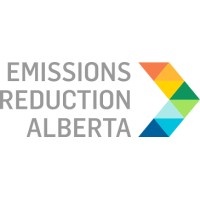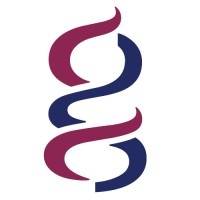
ERA — Advanced Materials Challenge
At a glance
- Maximum amount : 5,000,000 $
- Minimum amount : 250,000 $
- Up to 50% of project cost
- Receipt of requests is now closed
- Mining, quarrying, and oil and gas extraction
- Manufacturing
- Professional, scientific and technical services
- Administrative and support, waste management and remediation services
- Other services (except public administration)
- Public administration
- Alberta
- Non-profit
- Public or Parapublic institution
- For-profit business
- Social economy enterprise
- Non-financial cooperative
- All revenue ranges
- All organization sizes
- Indigenous Peoples
- Canadians
- Higher Education
- Research
- Environment
- Economic, Social and Community Development
- Business Associations
- Indigenous peoples
- Rural / Remote communities
- Business owners / entrepreneurs
- Nonprofits / charities
- Academia / students
- All structures
- Municipal
- Provincial
- National
- International
Overview
The Advanced Materials Challenge offers up to $40 million for projects focused on shaping the circular economy and creating low emissions products, targeting areas such as concrete, plastics, and carbon materials. Eligible activities include scale-up, pilot demonstration, and first-of-kind commercial implementations in Alberta.
Activities funded
The ERA Advanced Materials Challenge fund supports projects that aim to innovate materials technologies with a focus on reducing emissions and enhancing circular economies. Projects eligible focus on novel applications in various industries and the development of low-emission products.
- Development of novel carbon materials including advanced carbon nanotubes and carbon fibres for diverse applications.
- Production of non-combustion products derived from bitumen or hydrocarbons.
- Innovations in circular and low-emission plastic technologies.
- Novel recycling processes focusing on compostable or biodegradable bioplastics such as PHA and PLA.
- Creation of materials that assist in carbon capture and sequestration, including next-generation solvents and biological processes.
- Conversion of carbon dioxide or other GHGs into products that sequester CO2 permanently.
- Processing and production of critical minerals such as lithium and vanadium.
- Enhancements in material performance and embodied carbon reduction in various construction materials.
- Emission reduction solutions for industrial processes through advanced membranes, filters, and coatings.
- Technologies in waste-to-value conversion and recycling for industrial and municipal waste streams.
- Development of biomaterials and bioproducts, including green building products and base chemicals.
Eligibility
Eligibility for this grant is determined by specific requirements that focus on the profile of the applicant and the location and nature of the proposed project.
- The technology solutions must be piloted, demonstrated, or deployed in Alberta, Canada.
- Applicants can originate from anywhere globally but must demonstrate a clear value proposition for Alberta.
- The applicant types include innovators, technology developers, commercial and industrial building owners, municipalities, Indigenous communities, associations, SMEs, universities, not-for-profits, and others.
- Projects must align with the purpose of shaping the circular economy and creating low emissions products.
- The minimum funding request must be $250,000, and ERA's contribution will not exceed 50% of the project's eligible expenses.
- Applicants are encouraged to form partnerships with Alberta's post-secondary and research institutions, Indigenous communities, co-operative organizations, and municipalities.
Who is eligible?
Innovators, technology developers, commercial and industrial building owners, municipalities, Indigenous communities, associations, small and medium-sized enterprises (SMEs), research and development organizations, universities, not-for-profit organizations, and others are invited to apply. While technology solutions can originate from anywhere globally, they must be piloted, demonstrated, or deployed in Alberta. Applicants are not required to be in Alberta, but all applicants must demonstrate a clear value proposition for the province.
Who is not eligible
This grant does not specify any explicit exclusions for companies or industries that cannot apply. However, it emphasizes that proposed projects must align with the goal of supporting transformative opportunities compatible with decarbonization strategies.
Eligible expenses
This grant supports projects geared towards advancing the circular economy and reducing emissions through innovative materials technologies. Eligible activities include the development, scaling, and demonstration of new technologies that enhance resource efficiency and lower carbon footprints across various material sectors.
- Production of non-combustion products from bitumen or other hydrocarbons.
- Development of circular plastics technologies and advanced recycling processes.
- Creation of compostable or biodegradable bioplastic materials.
- Utilization of carbon dioxide or other GHGs in the creation of valuable and permanently sequestered products.
- Increase in materials performance and reduction of embodied carbon in construction materials.
- Development of novel chemical processes and catalysts to enhance industrial efficiency.
- Advancements in waste-to-value solutions for various industrial and municipal waste streams.
- Exploration and production of critical minerals like lithium and vanadium.
- Development of biomaterials and green building products.
Eligible geographic areas
This grant requires that technology solutions be piloted, demonstrated, or deployed in Alberta, Canada. Applicants can be from anywhere globally, but they must demonstrate a clear value proposition for the province of Alberta.
- Projects must be piloted, demonstrated, or deployed in Alberta, Canada.
Selection criteria
The evaluation and selection of projects for this grant are based on specific criteria to ensure that they meet the strategic objectives of the initiative.
- Compatibility with decarbonization strategies and potential to achieve substantial emissions reductions.
- Demonstration of a clear value proposition for Alberta and its manufacturing and resource sectors.
- Potential to increase the competitiveness of Alberta’s industries and grow new provincial industries with export potential.
- Readiness for field pilot, demonstration, or first-of-kind commercial implementation by project completion.
- Alignment with focus areas that support the circular economy and low-emissions product development.
- Innovative and transformative nature of the proposed technology or solution.
How to apply
Register for Webinar
- Participate in the informational webinar on November 27 from 1-2 p.m. MST (UTC-7h) to gain comprehensive insights into the application process and guidelines.
- Access the relevant links provided to further understand the application requirements.
Review Guidelines and Templates
- Carefully review the "Call for Expressions of Interest Guidelines".
- Understand the "Eligible Expense and Cost Instructions" to ensure all costs are compliant.
- Familiarize yourself with the "Privacy, Confidentiality, Data, and Security Policy".
- Download and use the "Expression of Interest Template" for your application.
Determine Eligibility and Partnerships
- Ensure your project and organization fall under the eligibility criteria outlined.
- Consider forming partnerships with Alberta’s post-secondary institutions, Indigenous communities, and local businesses to strengthen your application.
Prepare Expression of Interest (EOI)
- Draft the EOI focusing on compatibility with the circular economy and low emissions objectives.
- Highlight how your project aligns with the focus areas, and its potential for emissions reduction.
Submit Expression of Interest
- Prepare all necessary documentation using the provided template.
- Submit the EOI by the deadline at 5 p.m. MST on January 22, 2025, ensuring it meets all submission requirements.
Await Response
- Wait for confirmation of submission and any follow-up communication from ERA.
- Prepare for possible requests for additional information or interviews during the review process.
Additional information
Additional relevant details for this grant call are highlighted below:
- A consortium approach is encouraged, promoting collaborations among different organizations to leverage resources and expertise.
- There must be a clear alignment with decarbonization strategies, focusing on tangible emissions reductions.
- ERA collaborates with Alberta Innovates for broader technological support, indicating a potential for access to additional resources.
- The maximum grant contribution is capped at 50% of the total eligible project expenses, necessitating co-financing from other sources.
- ERA requires measurable outcomes that convey a significant impact on emissions reduction and innovation in material technologies.
- Open dialogue about participating in webinars and adhering to guidelines indicates that additional preparatory resources are openly accessible.
Frequently Asked Questions about the ERA — Advanced Materials Challenge Program
What is the ERA — Advanced Materials Challenge?
How much funding can be received?
Who is eligible for the ERA — Advanced Materials Challenge program?
What expenses are eligible under ERA — Advanced Materials Challenge?
Who can I contact for more information about the ERA — Advanced Materials Challenge?
Where is the ERA — Advanced Materials Challenge available?
Is the ERA — Advanced Materials Challenge a grant, loan, or tax credit?
More programs like this

Capital Retrofits
Government of Alberta
Alberta Carbon Capture Incentive Program (ACCIP)
Government of Alberta
Women in STEM Scholarship
Government of Alberta
Genomic Innovations: Energy and Environmental Solutions
Genome Alberta
Genomic Applications Partnership Program (GAPP) — Alberta
Genome Alberta
Alberta Innovates — Bioenergy and Circular Economy
Alberta Innovates
Alberta Innovates — Voucher Program
Government of Alberta
Alberta Agri-Processing Investment Tax Credit (APITC)
Government of Alberta
NSERC Alliance – Alberta Innovates Advance Program
Alberta Innovates